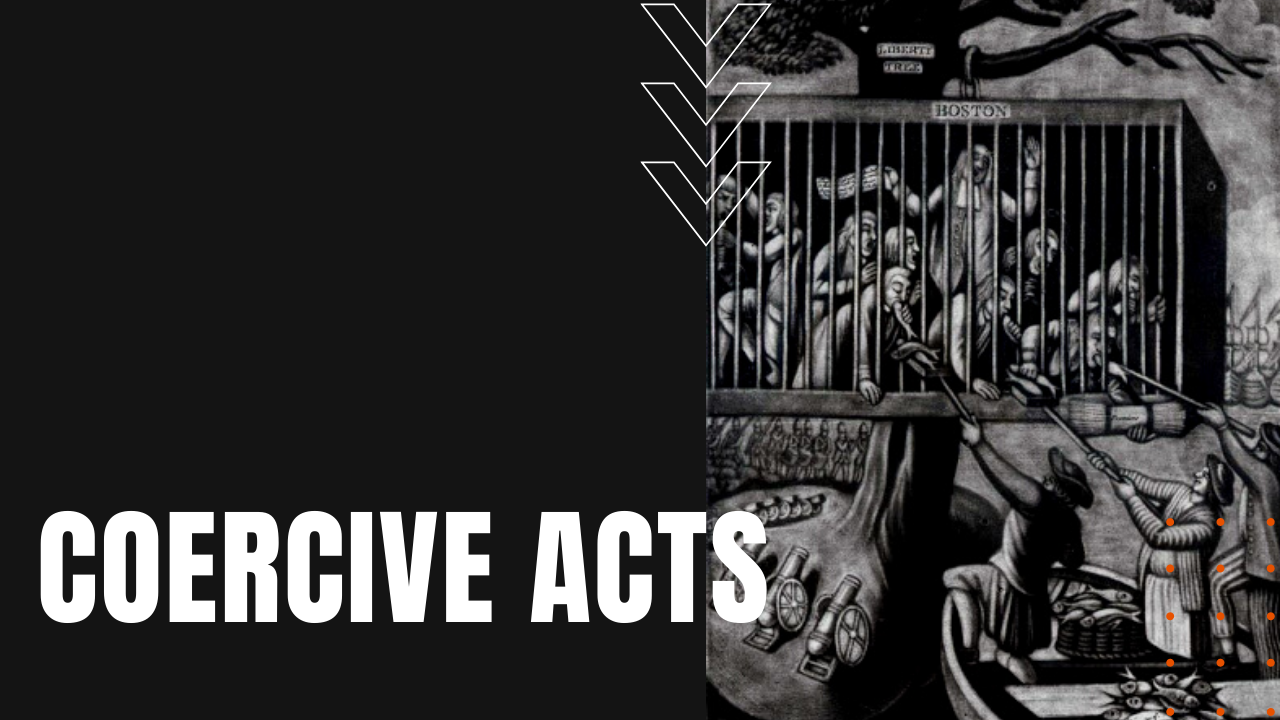Coercive Acts: Intolerable Acts Imposed in Response to Boston Tea Party

After the Sons of Liberty boarded three British tea ships and dumped 342 crates of tea into Boston Harbor in protest of the Tea Act, the British imposed four impunity acts intended to make an example out of Massachusetts, thereby reversing the trend of colonial resistance to parliamentary authority, beginning with the Sugar Act of 1764.
Intolerable Acts
First came the Boston Port Act, which closed the port of Boston until damages from the Boston Tea Party could be paid. Next came the Massachusetts Government Act, which restricted democratic town meetings in the offending colony, while turning the governor’s council into the only official governing body. The Administration of Justice Act was next on the punishment block, which made British officials immune to criminal prosecution in Massachusetts, while the Quartering Act required colonialists to house and quarter British troops on demand.
The Quebec Act, which extended freedom of worship to Catholics in Canada, as well as granting Canadians the continuation of their judicial system, was tacked on to the four Coercive acts, which as a whole became known by the colonialists as the Intolerable Acts.
Why Did Parliament Pass the Coercive Acts?
More important than the acts themselves was the colonists’ response to the legislation. Parliament hoped that the acts would cut radicalized Boston and New England off from the rest of the colonies, fully expectant that the remaining colonies would abandon their Bostonian brothers for fear they too would fall under Parliament’s Draconian measures and the negative impact of British martial law.
Instead, the acts triggered outrage and indignation throughout the thirteen colonies as they rushed to the city’s defense, sending in supplies before forming their own Provincial Congresses to discuss British misrule and mobilize resistance against their British overlords. In September of 1774, the First Continental Congress met in Philadelphia and began orchestrating a united resistance to British rule in America, later sparking the American Revolutionary War in April of 1775. And there you have it, the Coercive Acts ignite war with Great Britain, today on The Daily Dose.
